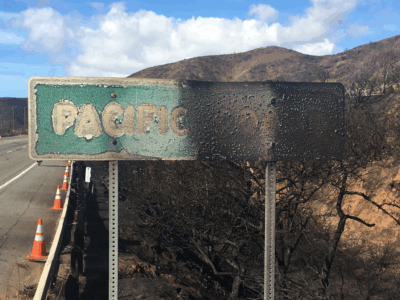California
We Built This City On Urban Form
California’s CEQA reforms will require rethinking how we code our cities
I am one of the relatively few observers who is not convinced that the California Legislature’s recent CEQA reforms are some sort of major transformation. They are a positive step toward building more housing in this state, but the idea that they will unleash housing construction and affordability is a classic case of overpromising – …
Continue reading “We Built This City On Urban Form”
CONTINUE READINGFilling the gaps from CEQA reform
California has long leaned heavily on CEQA to cover gaps in other environmental laws. That will have to change when we reform CEQA.
California has enacted a major reform for CEQA, creating a substantial exemption for infill urban housing. I’ve written why this is, on balance, beneficial for housing and the environment. But I also want to highlight a pitfall as the state continues looking at future reforms for CEQA. California has long relied on CEQA as a …
Continue reading “Filling the gaps from CEQA reform”
CONTINUE READINGA Very Bad House Vehicle Pollution Bill
The Fuel Emissions Freedom Act may be a stunt, but it’s worth examining
It can be hard to keep track amid all the hair-raising developments in Congress and at the Supreme Court, but last week, a group of House Republicans led by Roger Williams of Texas introduced the Fuel Emissions Freedom Act, hot on the heels of the purported (illegal) termination of California’s vehicle emissions standard waiver. This freedom-to-pollute …
Continue reading “A Very Bad House Vehicle Pollution Bill”
CONTINUE READINGThoughts on AB 131
Overall a good bill, but the definition of natural and protected lands is inadequate
Governor Newsom is pushing for CEQA reform as part of approval of the state budget, and the result is two budget trailer bills, AB 130 and AB 131, that together provide some of the most significant changes to CEQA in many years. Overall, these are good bills. The changes are focused on facilitating development where …
Continue reading “Thoughts on AB 131”
CONTINUE READINGHow To Botch A CEQA Analysis
LA Metro’s draft EIR for the crucial Sepulveda Transit Corridor is thorough and careful, but it misses a key point: heavy rail is environmentally superior.
If you are from Los Angeles, you will get this. Q: What’s the best thing about the 405? A: Free parking. The 405 is the highway that runs down the west side of metropolitan Los Angeles, connecting the San Fernando Valley to west Los Angeles, down through the South Bay and into Orange County. Even …
Continue reading “How To Botch A CEQA Analysis”
CONTINUE READINGWhat Have We Learned About Rebuilding from Fire?
Woolsey Fire survivors reflect on the rebuilding process and what might help rebuild more resiliently after the January fires.
When I first met Nicole Fisher in 2019, her property in the Santa Monica Mountains was nothing but a driveway and a pile of cement. I was interviewing the art teacher for a radio story about her family’s plans to rebuild after the 2018 Woolsey Fire that destroyed her home and hundreds of others in …
Continue reading “What Have We Learned About Rebuilding from Fire?”
CONTINUE READINGThe “Big Beautiful Bill” is One Damn Dirty Deal
The Drain is a weekly roundup of environmental and climate news from Legal Planet.
My family is about to take a road trip. Out our window we will see beaches, lakes, and a whole lot of public land that would be eligible to be sold off to developers and corporations under the recent version of a budget bill that Republicans want to rush through this week. Welcome to The …
Continue reading “The “Big Beautiful Bill” is One Damn Dirty Deal”
CONTINUE READINGCan Public Ownership Fix Our Electricity Woes? It’s Complicated
New UCLA report “Power Struggle: California’s Electric Utility Ownership Dilemma” by Sylvie Ashford, Mohit Chhabra, and Ruthie Lazenby
This post is co-authored by Sylvie Ashford and Mohit Chhabra. California’s investor-owned utilities (IOUs) are under intense scrutiny for causing deadly wildfires and charging some of the nation’s highest electricity rates. Adding to these challenges, IOUs are required to make significant clean energy and grid investments to achieve the state’s goal of a net zero …
Continue reading “Can Public Ownership Fix Our Electricity Woes? It’s Complicated”
CONTINUE READINGImmigration Raids are an Attack on Climate
The Drain is a weekly roundup of environmental and climate news from Legal Planet.
It’s hard to watch the Trump administration test drive authoritarianism in California. Since the inauguration, I’ve found solace in slowly rewatching The West Wing, a good bedtime story for anyone who feels nostalgia for partisan politics of yesteryear. Anyone else doing this? It’s uncanny how my rewatching has lined up with real world events. In …
Continue reading “Immigration Raids are an Attack on Climate”
CONTINUE READINGLast Year’s Climate Bond May Not Be What You Thought
While investing in important adaptation and resilience measures, Proposition 4 does less to create new clean energy infrastructure investments
Last year, legislators passed, the governor signed, and California voters approved, a ten billion dollar climate bond (the Safe Drinking Water, Wildfire Prevention, Drought Preparedness, and Clean Air Bond Act of 2024, SB 867 (Allen), which appeared on the November ballot as Proposition 4). While the bond act’s full title largely tells the story of …
Continue reading “Last Year’s Climate Bond May Not Be What You Thought”
CONTINUE READING









